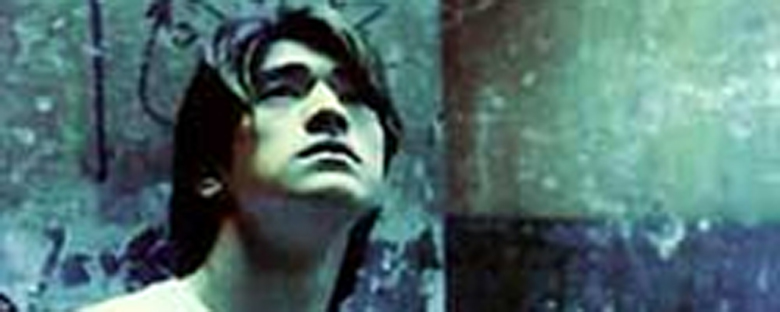Reviews
Duoluo tianshi
Wong Kar-wai
Hong Kong, 1995
Credits
Review by Leo Goldsmith
Posted on 21 January 2005
Source Kino DVD
Related articles
Reviews: As Tears Go By
Reviews: Days of Being Wild
Reviews: Chungking Express
Reviews: Happy Together
Reviews: 2046
Fallen Angels follows the wayward and only occasionally intersecting paths of a handful of denizens through the neon nightworld of Hong Kong: a boyish, mute ex-convict who randomly demands that people eat ice cream or have their hair cut, a cold and lazy hitman who ponders a life with greater job security, and a beautiful woman, the hitman’s partner, who obsesses over him while fornicating with a jukebox.
In many ways, the film exemplifies Wong’s early style, creating an air of absurdly cool nonchalance punctuated by moments of extravagant, almost preposterous violence. Like the characters, the style of the film lurches forward, then pauses for a reflective cigarette break. Christopher Doyle’s characteristically oversaturated photography mimics the characters’ hysterical actions, distorting the world with a handheld camera and a fish-eye lens, constantly re-framing and re-focusing this dreamy cityscape in a series of canted angles and baroque compositions. Similarly, the editing achieves the height of MTV-, ADD-addled frenetics, shifting between uncontextualized times and places, creating a sense of continual disorientation and misalignment.
The characters themselves, like so many in Wong’s earlier films, are notable for their apathy and brazen self-interest. The hitman, Wong, knows and cares nothing for those he is hired to kill—his only feeling is a mild annoyance when he gets shot. Ho, the mute, wanders around the shuttered markets of Hong Kong with blithe selfishness, and it is only at the end of the film, when his father dies and his “first love” fails to acknowledge him, that he realizes with regret that he must accept a certain measure of responsibility and maturity.
With Fallen Angels, Wong depicts an unreal city, illuminated entirely by cold artificial light. Television sets, neon signs, the lights from passing cars and trains, and bare bulbs create lurid pools of light between the shadows. What Wong has created here is a sense of impermanence—the characters’ lives and the world they live in are both parts of a constantly shifting surface that lingers for a moment in slow motion but soon vanishes. Like the mute Ho’s videotaping of his father, Fallen Angels lunges and chases after its rapidly receding subjects, looking to capture and preserve a trace of their presence before the sun rises and the shadows fade.
We don’t do comments anymore, but you may contact us here or find us on Twitter or Facebook.



